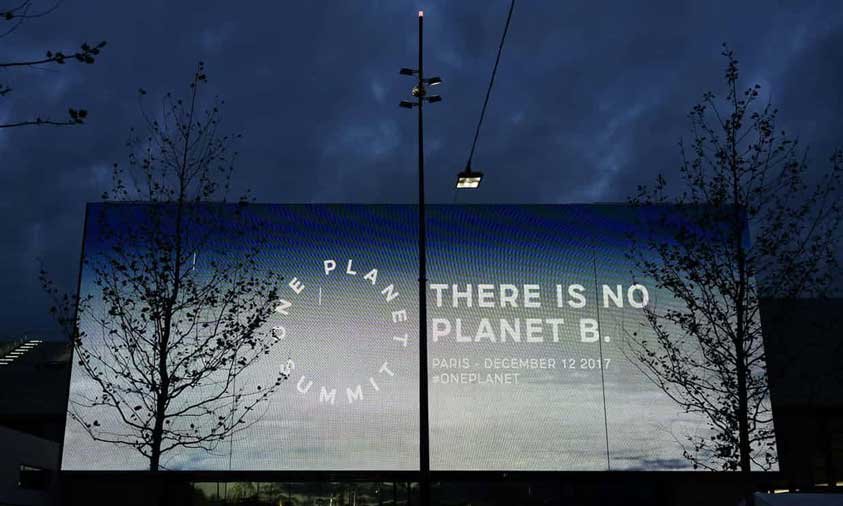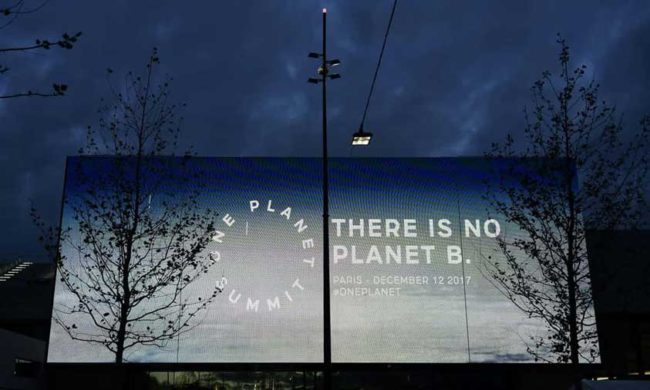 People can and do cross the divide. People who once promoted a specific stance will be persuaded that they were wrong and cross over to take a quite different stance. A rather obvious example is religious belief. There are many people who today are atheists but were once deeply religious, so quite clearly they have radically altered their views. However, the topic I’m focusing upon is Climate Change. Within that context I have a few examples of people who were persuaded, and so we shall now mull over those, and wonder what persuaded them to change their minds.
People can and do cross the divide. People who once promoted a specific stance will be persuaded that they were wrong and cross over to take a quite different stance. A rather obvious example is religious belief. There are many people who today are atheists but were once deeply religious, so quite clearly they have radically altered their views. However, the topic I’m focusing upon is Climate Change. Within that context I have a few examples of people who were persuaded, and so we shall now mull over those, and wonder what persuaded them to change their minds.
Why does it matter?
The greatest challenge our species has ever faced is the one that now stares us in the face, namely Climate Change. It threatens our very existence and viability and yet despite the overwhelming evidence and almost universal evidence-based scientific consensus, there are people who reject this rather stark reality.
Understanding why people who once rejected it all changed their minds enables us to see how we can become better communicators of what is perhaps the most important topic.
Guardian: Stories of people who changed their minds
A couple of days ago the UK’s guardian ran an article that listed some accounts of why individuals changed their minds. Here are a couple of examples from that article …
‘Al Gore’s An Inconvenient Truth was an eye-opener’: Annette Bejany, 51, Beirut, Lebanon
I was a teenager when President Ronald Reagan reassured us that global warming was all part of a natural, cyclical process – not dangerous and not caused by humans. Being a young, naive Republican, I believed him. When Al Gore’s documentary An inconvenient Truth came out in theatres, I would never have considered going to see it if I hadn’t become angry about Bush’s decision to invade Iraq and cynical about the Republicans’ lip service to Christian values. The movie was an eye-opener to say the least. Now I am a Green Party member, try to live a zero waste life, I’m nearly vegan and read up on climate change issues in the news on a regular basis. I agree 100% with Pope Francis’ encyclical on the environment that fighting climate change is a moral imperative for social justice and that it is a grave sin to be tyrants rather than stewards of the earth.
‘I read scientific papers and it became obvious the sceptic claims made no sense’: Harri Haanpää, 45, Siuntio, Finland
As a graduate student in the early 2000s, I did not really have an opinion on the matter but the debate raised my curiosity. So when some of the prominent sceptical websites made claims about some scientific papers, I searched for the papers online and checked for myself. It soon became quite obvious that the sceptic claims made no sense whatsoever. So I became politically active and I’ve now been active in the Finnish Green party for 10 years.
The last couple of examples the Guardian published within their list are not so cool. These were people who have changed their minds and decided that the scientific evidence is wrong and they now know better (rolls eyes).
There are other stories – Richard Muller
From here we find the story of Physicist Richard Muller who was quite sure that the data and associated conclusions were incorrect and flawed, so he set out to gather clear decisive evidence and discovered that he was wrong.
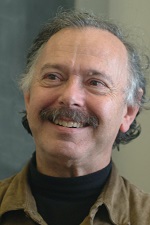 Richard Muller is a physics professor at the University of California, Berkeley who looked critically at certain climatestudies and identified problems with global temperature records which, for him, “threw doubt on the very existence of global warming”. So, like a good scientist, he looked at the data with fresh eyes and created the Berkeley Earth Surface Temperature(BEST) Project to see if global warming was really occurring. Long story, short: BEST verified what other climate scientists already knew–the globe is warming and human CO2 emissions are the cause. (Here is a short video of Muller explaining his work.)
Richard Muller is a physics professor at the University of California, Berkeley who looked critically at certain climatestudies and identified problems with global temperature records which, for him, “threw doubt on the very existence of global warming”. So, like a good scientist, he looked at the data with fresh eyes and created the Berkeley Earth Surface Temperature(BEST) Project to see if global warming was really occurring. Long story, short: BEST verified what other climate scientists already knew–the globe is warming and human CO2 emissions are the cause. (Here is a short video of Muller explaining his work.)
Muller credits his “total turnaround” to “careful and objective analysis”. But was his former skepticism “healthy” or “unfounded”? Perhaps there is a fine line here, but another scientist, James Powell, sees Muller’s skepticism as arrogance:
I think that we could learn from the case study that Muller did is that he should have trusted the other scientists and the peer review process which had produced the data that he was questioning.
But good science should be replicable, and in this case, Muller’s work strengthened the prevailing science. So, whether his skepticism was healthy or bordered on denial, it eventually led Muller (and all of us) to see more clearly the reality of AGW.
His Wikipedia article expands upon it all as follows …
In October 2011, Muller wrote in an op-ed in The Wall Street Journal, concerning his work with the Berkeley Earth Surface Temperature project:
When we began our study, we felt that skeptics had raised legitimate issues, and we didn’t know what we’d find. Our results turned out to be close to those published by prior groups. We think that means that those groups had truly been very careful in their work, despite their inability to convince some skeptics of that. They managed to avoid bias in their data selection, homogenization and other corrections.
Global warming is real. Perhaps our results will help cool this portion of the climate debate. How much of the warming is due to humans and what will be the likely effects? We made no independent assessment of that.[18]
While the BEST project did not delve into the proxy data sets used in the “hockey stick”, the importance of the work regarding the modern temperature record is explained on the BEST web site:
Existing data used to show global warming have met with much criticism. The Berkeley Earth project attempts to resolve current criticism of the former temperature analyses by making available an open record to enable rapid response to further criticism and suggestions. Our results include our best estimate for the global temperature change and our estimates of the uncertainties in the record.[19]
On July 28, 2012, he stated, “[G]lobal warming [is] real …. Humans are almost entirely the cause.”[3]
Foreign Policy named Muller one of its 2012 FP Top 100 Global Thinkers “for changing their minds”.[20]
Three Meteorologists change their minds – “Something ain’t right”
Climate is merely the average of weather over some time period, so meteorologists should have a keen interest in whether or not the climate is changing. But many meteorologists are quite dismissive of AGW. Minnesota weatherman, Paul Douglas, explains: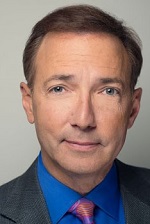
Some TV meteorologists, professionals who are skilled at predicting short-term weather, are still in denial. Why? Some don’t like being upstaged by climate scientists; we’ve all been burned by weather models, and some (mistakenly) apply the same suspicion to climate models. Others haven’t taken the time to dig into the climatescience.
Douglas, a moderate Republican and conservative Christian, was skeptical like most of his colleagues:
My climate epiphany wasn’t overnight, and it had nothing to do with Al Gore. In the mid-90s I noticed gradual changes in the weather patterns floating over Minnesota. Curious, I began investigating climate science, and, over time, began to see the thumbprint of climate change, along with 97% of published, peer-reviewed PhD’s, who link a 40% spike in greenhouse gases with a warmer, stormier atmosphere.
Douglas recognized that AGW has become a political football: “‘It’s all political’ one local TV weather-friend told me recently. No, it’s science. But we’ve turned it into a political football, a bizarre litmus test for conservatism.” But Douglas was able to ignore all of that and focus on what really mattered: the science.
Stu Ostro, a meteorologist with Accu-Weather and The Weather Channel, described himself as a “vehement skeptic…not only about a human role in global warming, but also the idea that there was anything unusual about any weather we had been seeing.”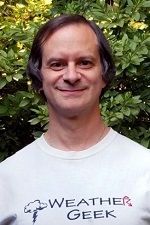
He elaborates further:
I am a meteorologist, not a climate scientist. I hadn’t ever read any peer-reviewed scientific literature on climate change. Why bother? I was busy forecasting the weather, didn’t have much spare time, and anyway all this global warming business was bunkum.
But, while forecasting the weather, Ostro began to notice “that something ain’t right.” The weather patterns he was used to were changing. He collected example after example after example of changes in the weather which point to a changing climate. His change from skeptic to acceptance of AGW didn’t happen overnight:
Let me be clear: the change from hard-core skeptic to my current way of thinking was not a sudden, reactionary thing based on a single warm day! It was a looong journey, based on trying to assimilate all the information I could.
That has included being more “plugged in” to the climate science community during the time since Dr. [Heidi] Cullen came to TWC [The Weather Channel] and having an increased awareness of the different perspectives that climatologists bring.
Ostro was the very definition of healthy skepticism:
I come to my own objective conclusions, and that will never change. Skepticism is a fundamental part of the scientific process, and healthy when in that vein. I continue to look at data with a skeptical eye. However, skepticism is not constructive when it becomes overwhelming and results in being closed-minded and only seeing what you want to see.
Greg Fishel has been a broadcast meteorologist in Raleigh, North Carolina for his whole career. He, too, was dismissive about AGW, but he said, “little by little and over a period of several years, I began to wonder if I was being fair and objective in my assessment of global warming.”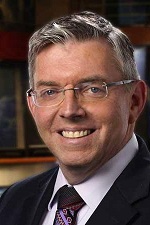
In 2005 he realized he had to give AGW an unbiased look:
I woke up one morning convinced of my own confirmation bias. I felt I’d abandoned my work as a scientist to be an ideologue…
I didn’t change my mind about global warming that day. Instead, I committed to talking with scientists who were actually involved in research and who published peer-reviewed literature in respected scientific journals. I also read many of those papers…
My argument that global warming had nothing to do with human activity was, I realized, an argument I would lose in the scientific court of law.
Fishel decided to change when he realized that his former skepticism was biased because of his political views. When he looked at climate science with an open mind, he realized that “tribal loyalty has no place in science”.
New York Times has six different conversion stories
Here is just one of those stories …
The Evangelical Leader
Richard Cizik, 66, Fredericksburg, Va.
In 2002, the Rev. Richard Cizik would have described himself as “a faithful member of the religious right,” he said. So when the Rev. Jim Ball, a founder of the Evangelical Environmental Network, invited him to a climate change conference that year, Mr. Cizik was hesitant.
“I heard the evidence over four days, did a fist to the forehead and thought, ‘Oh my gosh, if this is true, everything has changed,’” said Mr. Cizik, who was then vice president for government affairs at the National Association of Evangelicals. “I liken it to a religious conversion, and not just because I saw something I’d never seen before — I felt a deep sense of repentance.”
But a few years later, when Mr. Cizik began encouraging his fellow evangelicals to learn more about climate change, he was ostracized. Dozens of community leaders signed a petition for his firing. “Ostensibly it was over my supporting civil unions, but the real reality was that the right didn’t like my position on climate change,” Mr. Cizik said. “The entire religious right just attacked me. It was pretty aggressive.”
Mr. Cizik and his wife sold a car, started recycling and modified parts of their home to be more environmentally friendly, he said. They began to do what they thought God was calling them to do: change their minds. “If you’ve never changed your mind about something, pinch yourself, you may be dead,” Mr. Cizik said. “If we don’t change our mind about this subject, we will die.”
What do People Change their Minds?
In a recent Reddit conversation the question was put out: “Former climate deniers, what changed your mind?” Karin Kirk*, at Yale Climate Connections, analyzed the responses and found that “science” was the number one reason people gave for changing their minds (47%). The second most popular reason people gave was “stewardship” of the Earth (29%), and the third was the changing weather (21%). The fourth reason (17%) is related to the first: the credibility of science deniers’ arguments. Kirk noted, “An interesting sentiment among the commenters was that climate science deniers’ attempts to discredit climate science often had the opposite effect.” The poor quality of scientific arguments used by science deniers, as Jerry Taylor discovered, leads many to look more closely at valid scientific arguments, which further leads them to see how solid the science behind AGW really is. (For more on the poor quality of “skeptic” research see Lewandowsky et al. 2016 and Benestad et al. 2015.)
Often factors such as tribal loyalty come into play and so filling in information gaps does not always work. What is interesting is that the people above who changed their minds there did so because they got there by themselves. They were open to the possibility that they just might be wrong and so took a good long look at the facts. By doing so they reached a different better conclusion. You can’t persuade somebody who makes a decision to remain wilfully loyal to their tribe regardless of the facts or reality, but somebody willing to engage and work out what is really true can, and often will, find a newer better conclusion.
“Climate change is no longer some far-off problem; it is happening here, it is happening now." —President Obama http://t.co/GpZw8q2DYY
— Barack Obama (@BarackObama) September 1, 2015
Last quotes
“tribal loyalty has no place in science” – Greg Fishel the broadcast meteorologist in Raleigh, North Carolina, who changed his mind.
“If we don’t change our mind about this subject, we will die.” – Richard Cizik, an Evangelical leader who changed his mind.
